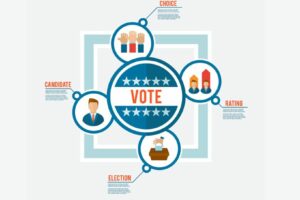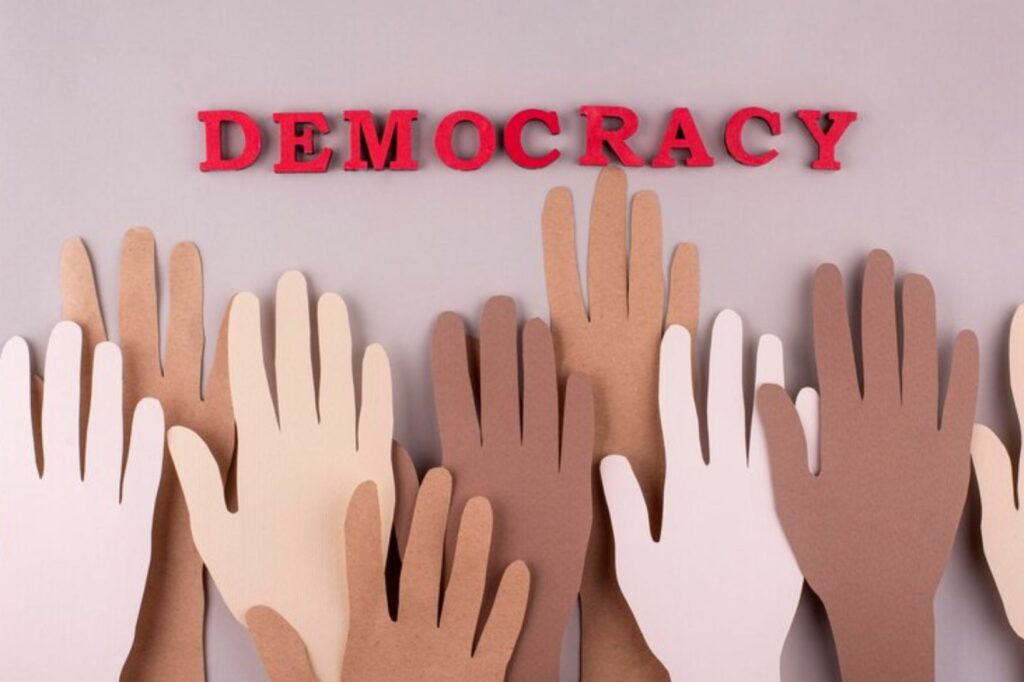Democratic governance stands as a cornerstone of modern societies, emphasizing the power of the people in shaping their own futures. It thrives on principles of transparency, accountability, and participation, ensuring that citizens have a voice in the decision-making processes that affect their lives. As democracies evolve, they face the challenge of adapting to new technologies and societal changes while maintaining their foundational values.
In an era where global connectivity is at its peak, democratic governance isn’t just a national affair. It extends beyond borders, influencing international relations and global policies. The interplay between local governance and global dynamics presents opportunities and challenges that demand innovative solutions.
Democratic Governance
Democratic governance involves decision-making processes where power rests with elected officials, who represent the people’s interests. Essential components include transparent institutions and responsive policymaking. This governance model promotes accountability, requiring leaders to justify actions to their constituents.
 Citizen participation ensures diverse voices shape policies. By voting and engaging in public discourse, communities can influence outcomes, fostering inclusivity. Additionally, the rule of law guarantees equal rights, providing legal frameworks to resolve disputes fairly.
Citizen participation ensures diverse voices shape policies. By voting and engaging in public discourse, communities can influence outcomes, fostering inclusivity. Additionally, the rule of law guarantees equal rights, providing legal frameworks to resolve disputes fairly.
Globally, democratic governance influences diplomatic strategies. Countries with shared democratic values often collaborate, strengthening alliances and supporting international norms. Recognizing these dynamics enables societies to navigate challenges and leverage opportunities in a globalized world.
Key Principles of Democratic Governance
Democratic governance remains a pillar of modern societies, largely due to its foundational principles. Participation, accountability, and transparency are essential elements that ensure governance effectively represents and serves its citizens.
Participation
Participation is the cornerstone of democratic governance, involving citizens in decision-making. Voting acts as the primary mechanism for this participation, granting individuals a voice in selecting leaders and influencing policies. Beyond elections, public forums, consultations, and civic engagement activities enable continuous citizen involvement. Effective participation fosters inclusivity by reflecting diverse social, economic, and cultural perspectives.
Accountability
 Accountability ensures leaders answer to the public, guiding actions and decisions with citizen interests in mind. Mechanisms like regular elections, performance evaluations, and legislative oversight hold officials responsible. Institutions focused on finance, public administration, and judiciary systems reinforce accountability by investigating misconduct and punishing corruption.
Accountability ensures leaders answer to the public, guiding actions and decisions with citizen interests in mind. Mechanisms like regular elections, performance evaluations, and legislative oversight hold officials responsible. Institutions focused on finance, public administration, and judiciary systems reinforce accountability by investigating misconduct and punishing corruption.
Transparency
Transparency in governance builds public trust by allowing access to information about governmental functions and decisions. Open data initiatives and freedom of information laws empower citizens to evaluate government performance. Transparent processes enable scrutiny in areas like budget allocations, policy formulation, and legislative activities, promoting an informed and engaged citizenry.
Democratic Governance Models
Democratic governance models vary across nations, each employing distinct systems based on historical and cultural contexts. Two primary models, the parliamentary and presidential systems, showcase different approaches to organizing government authority and citizen participation.
Parliamentary System
The parliamentary system features a close relationship between the executive and legislative branches. In this model, the government derives its legitimacy from the parliament, and the head of government, usually a prime minister, is elected by the parliament. This creates a streamlined process for enacting policies since the executive is supported by a majority in the legislative body.
Countries like the United Kingdom and Canada exemplify the parliamentary system. Here, the prime minister leads the government and is usually the head of the majority party or coalition. The parliament can remove the government through a vote of no confidence, ensuring accountability. Citizen representation occurs through elected members of parliament, providing a direct link between the government and constituents.
Presidential System
 The presidential system separates the executive and legislative branches, with citizens directly electing the president. This model promotes a clear division of powers, offering checks and balances to prevent any one branch from becoming too powerful. The president serves as both the head of state and government, with a fixed term.
The presidential system separates the executive and legislative branches, with citizens directly electing the president. This model promotes a clear division of powers, offering checks and balances to prevent any one branch from becoming too powerful. The president serves as both the head of state and government, with a fixed term.
The United States and Brazil operate under a presidential system. In this structure, the president independently appoints cabinet members and proposes legislation. Additionally, the system encourages a more balanced relationship between branches, although it can lead to gridlock when different parties control each branch. Direct elections grant citizens significant influence over government leadership, reinforcing democratic participation.
Principles and Practices
Democratic governance stands as a pillar of modern society, guiding nations toward transparency, accountability, and citizen engagement. By embracing these principles, societies can navigate technological and societal shifts while maintaining democratic integrity. The interplay between democratic governance and global relations highlights its significance in fostering international cooperation and upholding shared values.



